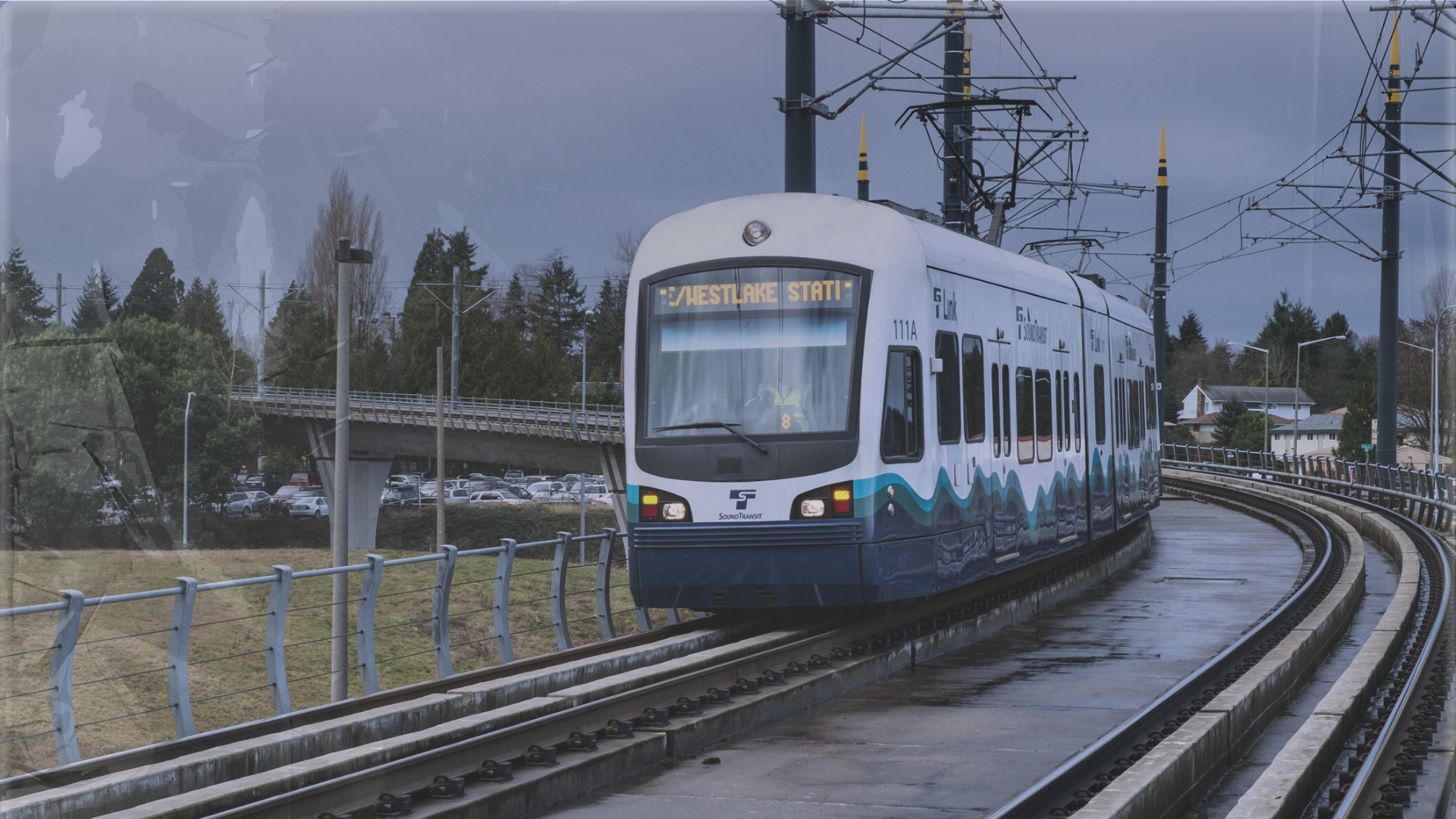Led by former Pierce County Executive and former Sound Transit Board Chair Pat McCarthy, the state Auditor’s Office has decided to conduct a much-needed performance audit of Sound Transit.
This is good news, as the last few years have been particularly troubling for the public agency.
In just one year, Sound Transit officials reported over $1 billion in cost overruns.
At the same time, the agency continues to overvalue vehicles using an outdated, repealed vehicle depreciation schedule in state law to collect maximum tax revenue from families in the Puget Sound region.
Other problems have included Sound Transit officials’ unpopular choice to aggressively use eminent domain to take hundreds of homes and businesses - including a local charity in Puyallup for a Sounder parking garage and a brand new Dick’s Drive-In in Kent for a new maintenance facility.
Sound Transit officials raised even more eyebrows when they announced they were seeking a second, half-billion dollar light rail station in South Lake Union a few blocks away from another station in an area where people are already encouraged to walk and bike, or take the bus or soon-to-be streetcar.
Hopefully, the audit is thorough and takes a close look at how the Sound Transit Board, which is not directly elected, continues to make sweeping, unpopular decisions like these that hurt the people the agency has promised to serve.
Here are a few of our ideas for areas that could (and should) be audited:
- Mission and Scope
- Are Sound Transit’s current operations, including work on housing affordability and transit-oriented development, in line with what the agency was established to do by the legislature?
- Are Sound Transit’s current operations, including work on housing affordability and transit-oriented development, in line with what the agency was established to do by the legislature?
- Ridership
- What did Sound Transit promise for ridership on each line by a given year and what is the actual ridership?
- How many new riders has each line attracted?
- How many new riders (not bus transfers) does Sound Transit plan to attract with Sound Transit 3?
- Costs
- What were the costs budgeted for each line as shared with the public and what are the actual, current costs for each line?
- Are any expenditures in the last 10 years in conflict with RCW 42.17A.55, which bars public agencies from using public resources for campaign or political purposes?
- What are specific areas where Sound Transit officials can reduce costs? Are there any services that can be reduced or eliminated, or transferred to the private sector?
- Are there any employee positions that are unnecessary or overlap in roles? Could Sound Transit reduce the number of government relations employees at the agency?
- Can Sound Transit reduce or otherwise identify the purpose of having 39 law firms on retainer in the Puget Sound (as of 2/16/18)?
- Contracts
- What contracts have gone over budget? Are change orders supporting overages?
- Are there any elements of Sound Transit’s contracting process that drive up cost relative to other public agencies? (Example: Bellevue road extension from NE 12th to NE 120th Street – Sound Transit’s contractor bid the plans for the road and the numbers were twice as high as those that were provided in a rebid to the City of Bellevue).
- Payments
- Are there any conflicts of interest with payment to any vendor? (For example, anyone managing or voting on behalf of Sound Transit does business with a vendor or issues a contract to a related party)
- Are there any conflicts of interest with payment to any vendor? (For example, anyone managing or voting on behalf of Sound Transit does business with a vendor or issues a contract to a related party)
- Debt
- Sound Transit has overstated interest rates in the past in their budget. Given that they have issued debt at interest rates lower than what they assumed in their ST3 budget, would it be possible to use the remaining debt capacity to reduce the motor vehicle excise tax imposed on taxpayers in the district, which has resulted in unfair overcharges?
- Sound Transit has overstated interest rates in the past in their budget. Given that they have issued debt at interest rates lower than what they assumed in their ST3 budget, would it be possible to use the remaining debt capacity to reduce the motor vehicle excise tax imposed on taxpayers in the district, which has resulted in unfair overcharges?
- Subarea Equity
- Is the principle of subarea equity being adhered to as promised to voters in 1996? If not, why?
- Is the principle of subarea equity being adhered to as promised to voters in 1996? If not, why?
- Eminent Domain
- Is Sound Transit in compliance with current state law on eminent domain? Is the agency’s implementation of eminent domain consistent – in other words, are property owners being treated the same no matter who they are?
- Is Sound Transit in compliance with current state law on eminent domain? Is the agency’s implementation of eminent domain consistent – in other words, are property owners being treated the same no matter who they are?
- Relationships with Advocacy Groups
- Are Sound Transit’s relationships with advocacy groups a useful and proper use of public money?
- Board Structure
- Does the current governance structure of the Sound Transit Board promote accountability to and transparency with the public?
- Do any current board members have any conflict of interest with their work on the board and any other public or private position they hold?
- How are other similarly-sized taxing districts across the country with a Sound Transit-sized budget being governed?
Should the audit move forward, we hope Sound Transit complies with the Auditor’s recommendations. In the past, when the State Auditor found Sound Transit wrongly spent money on sponsorships at political events for three nonprofits, Sound Transit “continued buying sponsorships even after the auditor warned the agency in June 2007 that those were improper.”
Rather than ignoring recommendations for improvement, Sound Transit officials should do due diligence in implementing them and making the agency more trustworthy and accountable to the public. Public credibility and trust are critical as Sound Transit moves forward with its multi-billion dollar light rail expansion throughout the region.






